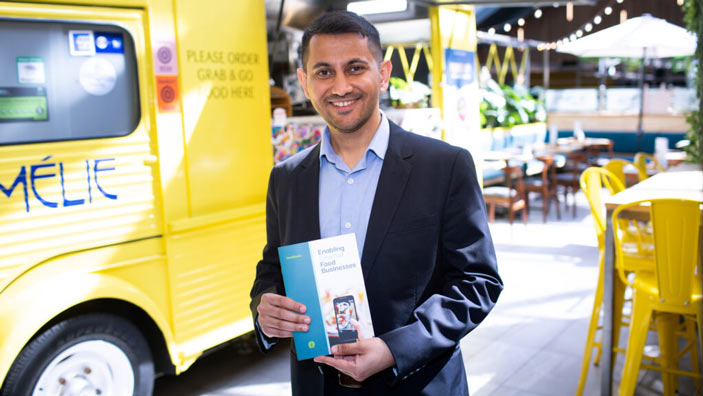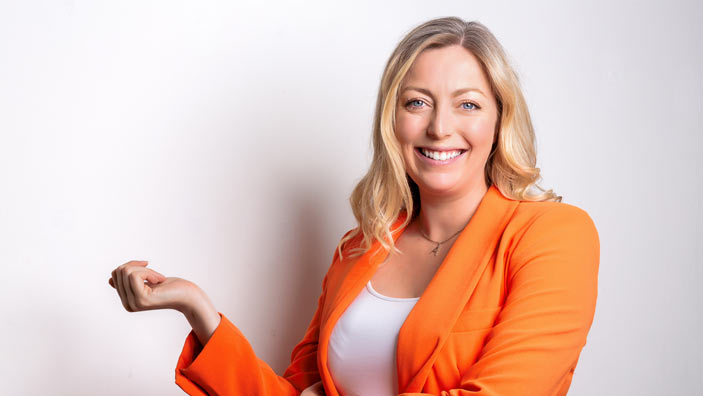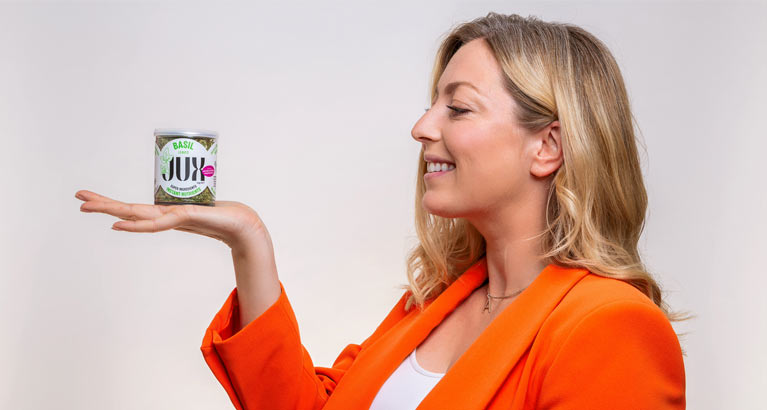As the world population continues to grow, tackling some of the planet’s biggest challenges starts with re-shaping the food industry – and consumers are waking up to the issues.
According to research by Forbes, 65% of consumers look for products to help them live more sustainably and socially responsibly, while 60% buy products and services from companies that put the focus on ESG.
As well as bringing about positive change for the planet, it’s also opening ample opportunities for careers in the sector – including entrepreneurial ventures. To find out more about how to capitalise on this burgeoning field and how the MBA can help hone your skills, we spoke to 2 Cambridge Judge alumni currently making waves in the industry.
Suyash Bhatt, Founder & CEO, Foodbud

MBA programme 2019 (graduated in 2020), Accelerate Cambridge programme 2020-2021
Can you tell us more about Foodbud and how and why you founded it?
Foodbud is a digital platform that uses machine learning to give personalised and curated food recommendations to its users. We also provide food-related businesses such as restaurants and grocery stores with user-friendly data analytics tools, making their offerings more transparent. In partnership with Quadram Institute Bioscience (QIB), we’re also embarking on a venture to link sustainability information to every ingredient consumed in the UK, making it readily accessible to the public. Our goal is for complete transparency across the food supply chain.
What current trends are you seeing in the food sustainability sector?
Alongside growing interest in plant-based food alternatives, consumers are demanding more information about the sources, ingredients and nutritional content of their food. Consumer awareness around sustainability will continue to grow in several aspects, such as eco-friendly packaging, carbon footprint awareness and eliminating single-use plastics. We’re also seeing a crackdown on food waste – the UK has set targets to cut food waste by 20% per capita by 2025. This growing consumer awareness will drive big and established companies to focus on their ESG practices and deliver ESG-focused marketing campaigns.
How did the MBA focus in on sustainability?
The MBA provided me with several opportunities to interact with sustainability experts who helped me shape Foodbud’s vision. While the core curriculum explored the principles and challenges of sustainability in businesses, the practical projects I worked on, both the Global Consulting Project (GCP) and the Cambridge Venture Project (CVP), helped me understand the real-world challenges faced by different types of businesses striving to become more sustainable.
I was also introduced, along with the rest of my cohort, to several external speakers and guest lecturers, as part of the MBA curriculum and learning, who have since then, continued to help me shape my understanding post-MBA. This led me, along with two other MBA alumni to work on a side project developing a game-based learning solution to help executives learn about ESG marketing.
How did the MBA help prepare you for entrepreneurship generally?
There were so many opportunities to get involved with entrepreneurship at Cambridge, from participating in Cambridge Venture Creation weekends to attending Cambridge University Technology and Enterprise Club events. As part of the MBA curriculum, I also chose to do the Concentration in Entrepreneurship, and I then dedicated my MBA Summer Research Paper to my startup business plan. There were also lots of opportunities to network with startup founders who had also studied at Cambridge Judge or were part of the wider entrepreneurial eco-system in Cambridge and across the University of Cambridge community.
In March 2020, I went to an entrepreneurship event at Trinity College, for example, where I met my now chief advisor and investor. I joined the Accelerate Cambridge programme, also at Cambridge Judge, in 2020, which helped me turn my idea into fruition and I was able to then actually launch Foodbud – many of our early adopters were introduced to me by coaches on this Cambridge Judge programme.
What tips do you have for future aspiring entrepreneurs?
Whether in the food sustainability sector or any other industry, future entrepreneurs should begin by identifying real problems and unmet needs to address. Passion and purpose should drive your venture, as genuine enthusiasm keeps you motivated in the face of challenges.
Use the resources you get during your MBA to help you carry out thorough market research to understand your target audience, competition and industry trends. Building a strong network of mentors and advisors can also provide invaluable guidance and support. The Cambridge eco-system does a really great job in helping broaden your network, with various events and programmes related to entrepreneurship on offer.
Team building is arguably the most crucial aspect of entrepreneurship, so surround yourself with skilled and motivated people, and be adaptable and open to change. Most importantly, stay committed to lifelong learning, and remember the importance of work-life balance along the way.
Anna Mason (nee Wood), Founder, JUX Food

MBA programme 2021 (graduated in 2022), Accelerate Cambridge programme 2022-2023
Can you tell us more about JUX Food and how and why you founded it?
Suffering from illness in 2019 and after exhausting all the conventional treatment options, I turned to food to recover. After researching the power of certain foods and the importance of good gut health, I found that a plant-rich diet would not only help my recovery but also offered a huge number of other benefits beyond health – but eating a varied and plant-rich diet is hard for several reasons. In Europe alone, less than 1 in 10 people can access their five-a-day, so I set out to change this. After countless hours of testing and research, a six-month nutrition programme and one MBA later, JUX Food was born.
What have been the key rewards and challenges of founding JUX Food?
The feedback from our customers has been the best part by a clear mile – one customer described our products as life-changing. We were also featured in The Sunday Times recently, highlighting our continued efforts to provide the best experience to customers, as well as how we’re using pioneering technology to gain data insights. The biggest challenge is making sure we don’t rush decisions to get everything right – but not sacrificing quality for time has paid off!
What current trends are you seeing in the food sustainability sector more generally?
I think we’ll continue to see more innovative and creative solutions to feeding our growing global population. Companies like FoodSquared create plant-based shellfish – the carbon impact of their shrimp is six times lower than eating traditional shrimp, and I believe we’ll see more exciting innovation in this area.
What did you learn on the MBA around sustainability and entrepreneurship?
The MBA provided lots of opportunities to explore the food and the wider sustainability sector. I ended up working on an ESG-related project for an AI firm in Tokyo for a month for the Global Consulting Project (GCP). It was a completely unforgettable experience that I wouldn’t have been able to experience had I not done the MBA.
On the entrepreneurship side, various MBA electives and courses tailored towards entrepreneurship, such as Stewart McTavish’s ‘How to start a business’, covered a fantastic and thorough overview of the fundamentals of starting a business and helped save me a lot of time! After the MBA, I also took part in the Accelerate Cambridge programme which, with the support of mentors, was a great first step into the entrepreneurial world.
How did the MBA help prepare you to launch your own venture?
Doing an MBA at the University of Cambridge, along with being awarded the Professor Nick Oliver Scholarship for UK Nationals, gave me a lot of confidence. I loved the academic aspects of the programme, but the people really made it. Many of our cohort had already achieved some incredible entrepreneurial achievements by the time they were 30 – I learnt so much from them, and it gave me the confidence to go out on my own and pursue my ambitions.


